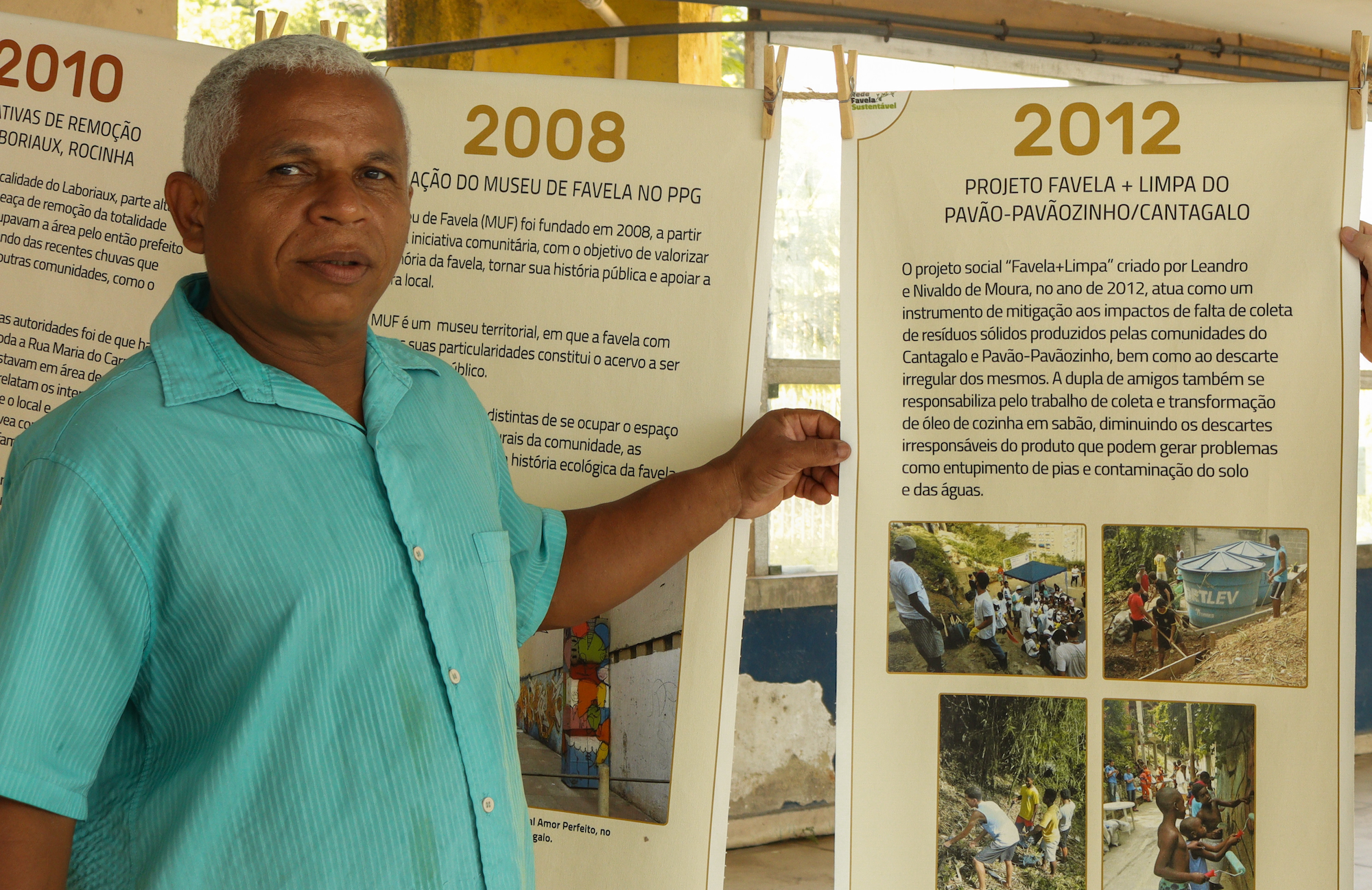
Clique aqui para Português
The Favela Climate Memory Exhibition, organized by museums and memory projects associated with the Sustainable Favela Network (SFN)*, was on display from May 6-June 4 at the Favela Museum (MUF) in Pavão-Pavãozinho/Cantagalo, South Zone of Rio de Janeiro. The exhibition was part of the program honoring Brazil’s 22nd Annual National Museum Week. MUF’s primary events for National Museum Week began on May 13 with both museum staff and visitors present for the Climate Memory Exhibition. They also had the opportunity to watch the play “Rocking Chair,” presented by the Reverbere Collective and directed by Dudu Gehlen. This touching play delves into the memories of a deceased family member.
The Favela Climate Memory exhibition arose as the final product of five favela climate memory circles held in 2023 by the following community museums: Maré Museum in Complexo da Maré, Sankofa Museum in Rocinha, Historic Orientation and Research Nucleus of Santa Cruz (NOPH) in Antares, the Favela Museum (MUF) in Pavão-Pavãozinho and Cantagalo, and the Vidigal Memories Nucleus. All five are members of the Sustainable Favela Network’s Culture and Local Memory Working Group.
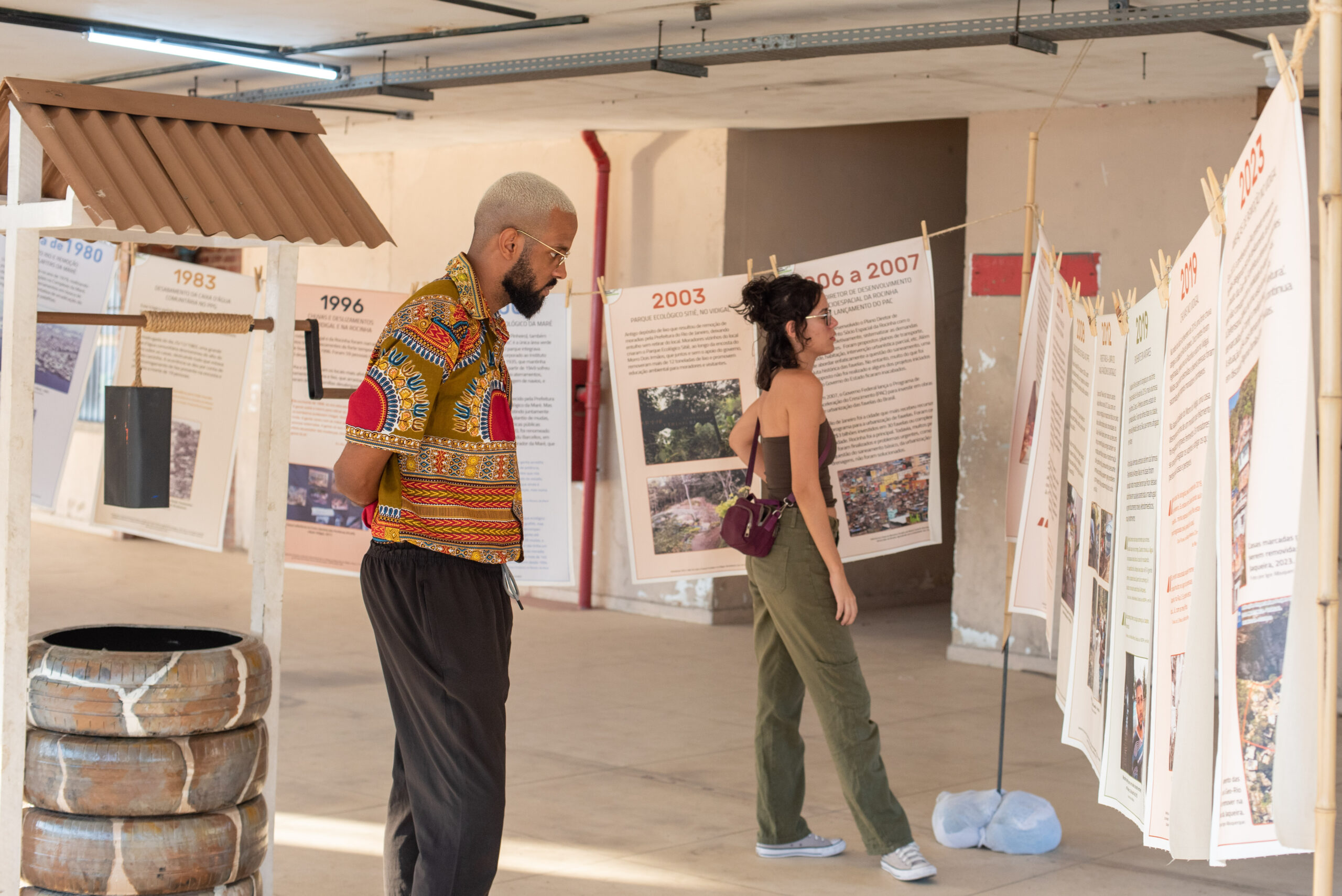
The exhibition consists of accounts and memories about climate, narrated from the perspective of residents of five Rio favelas and displayed in video form, through banners, a timeline, and using an interactive map, making it possible to witness memories that make up the history of the participating favelas. The exhibition also includes a map of museums and memory projects from the Sustainable Favela Network. There is also the art installation “Well of Memories” designed by Vidigal artist Evânia de Paula. The “Well of Memories” contains approximately 100 photographs in an interactive installation for visitors. At the opening remarks, Márcia Souza, one of the founders of MUF—which celebrated its 15-year anniversary—spoke about the exhibition and then invited all visitors to watch the “Rocking Chair” theater play.
“My name is Márcia, and I am one of the founders of the Favela Museum. We are welcoming this project [here,] the play ‘Rocking Chair,’ which is a very special moment for me… The museum is open to everyone and the Favela Climate Memory exhibition is taking place now. I want to thank all of you… and say I’m very happy and let’s start the show.”
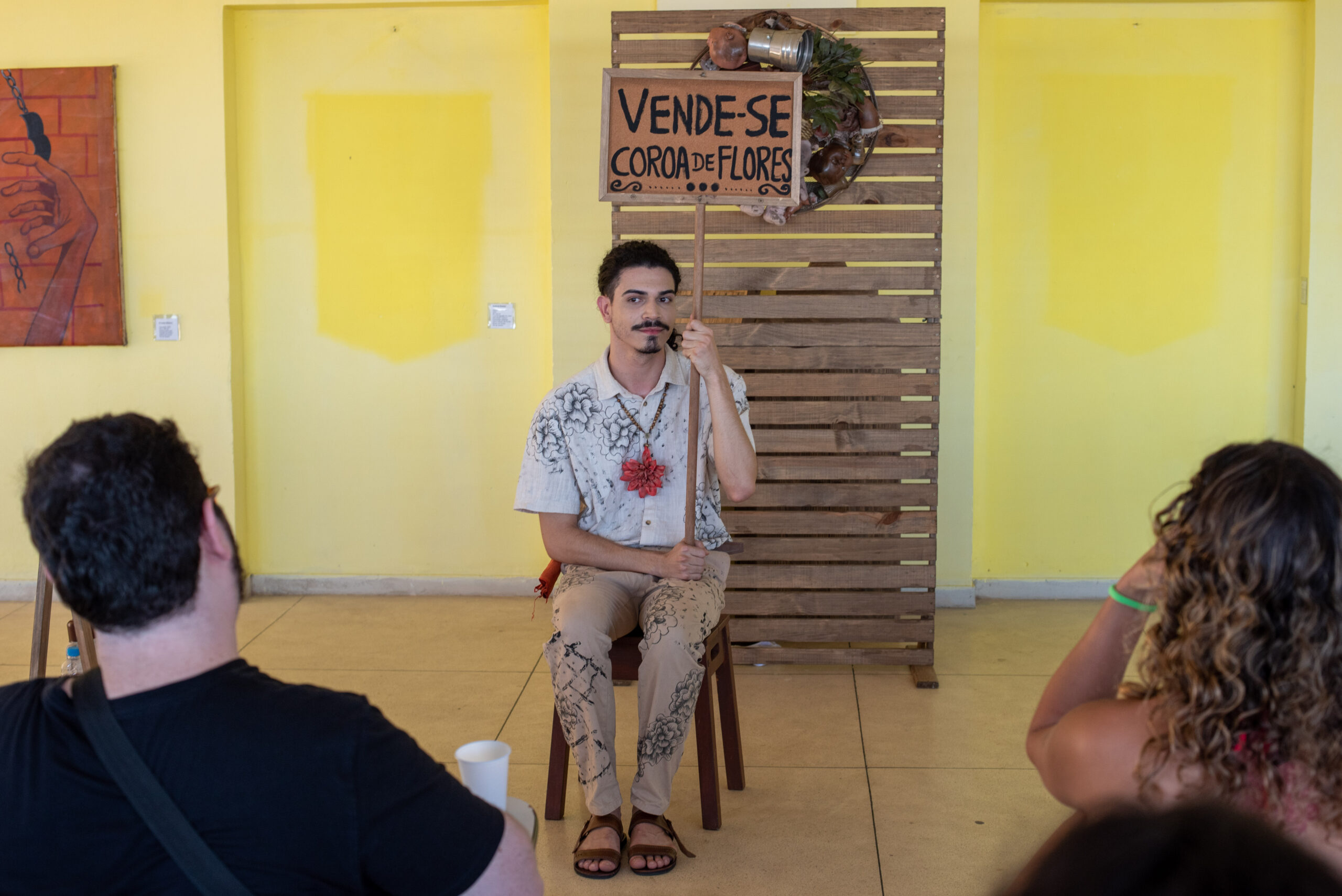
The play “Rocking Chair,” performed by actor Dudu Gehlen from the Reverbere Collective, explores the relationship between time and death as an attempt to materialize affection and reconstruct someone who has already passed away. We spoke with Gehlen, an actor from the state of Maranhão, about the significance of presenting the play at the opening of an exhibition about climate memories, considering its focus on emotional and tender events.
“The piece we put on at the Favela Museum is called Rocking Chair. It was very important to bring it to a museum space, especially during Museum Week, because this piece is all about preserving memories. We are constantly working to document the existence of the women in my family, especially Dona Caçula, who is my great-grandmother. So, for us, it is very rich to bring this and open this line of discussion, emphasizing the importance of preserving memories.” — Dudu Gehlen
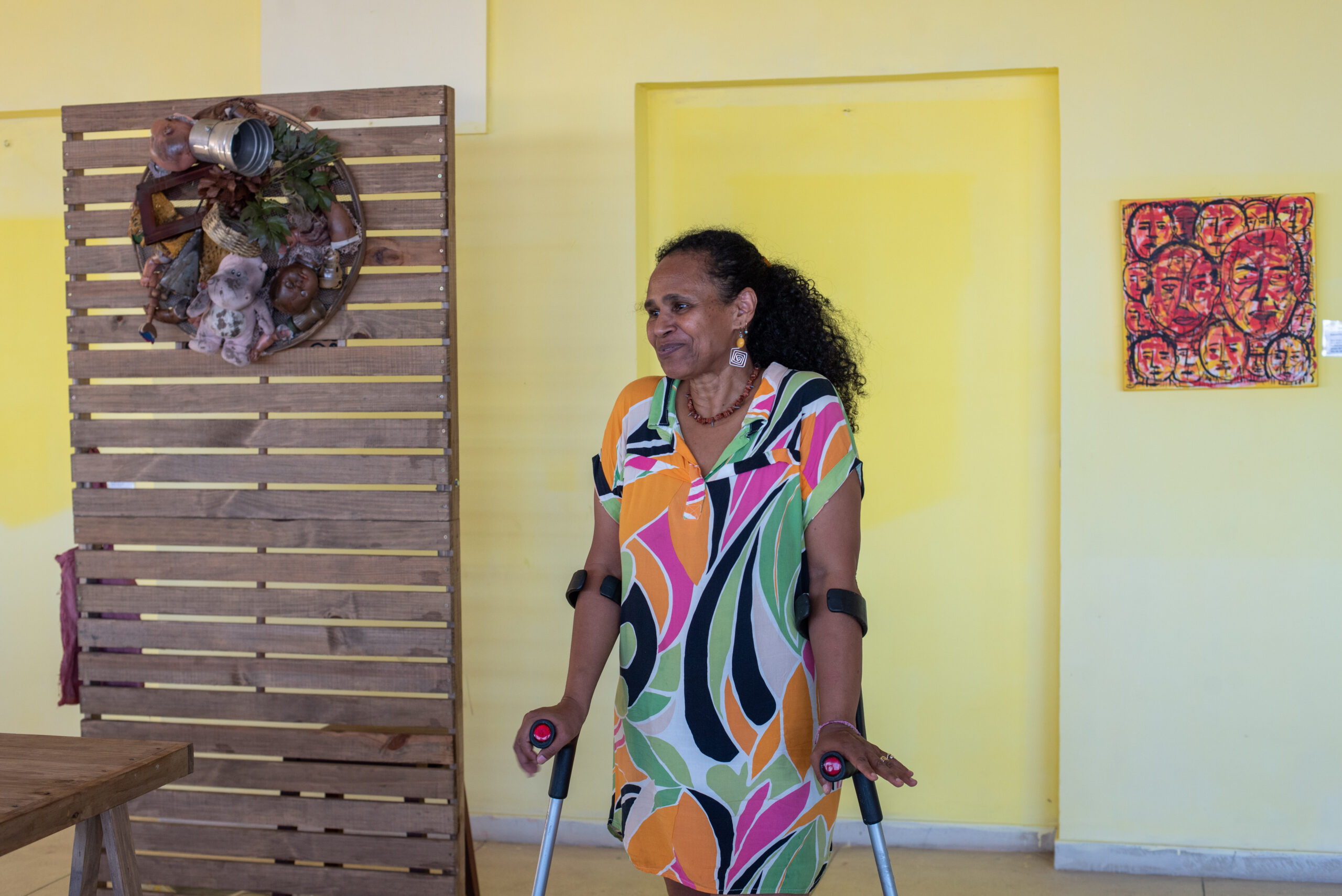
After the play, attendees were invited to visit the Favela Climate Memory exhibition. Souza elaborated on the process of participating in the circles that generated the exhibition and emphasized the significance of its returning to the favela, allowing residents and visitors to learn about the outcomes of this collaborative effort.
“I participated in the whole process of forming ideas for the [climate memory] discussion circles. Seeing the first stage completed and receiving the resulting exhibition here is really significant. The residents sharing their thoughts, looking at each other, and also being able to see that this is not just happening here, that there are other places facing very similar problems: they find this identification with one another. Because we often think that these things only happen here, that only we have been abandoned, that only we go through this… And then, [having] exchanges and solutions, to be able to say ‘look over there, they solved it in this way, here [we solved it] another way’. This exchange is very important. And, in a sense, it was to house this creation, that [I] participated, that I was able to contribute to this creation.” — Márcia Souza, co-founder of the Favela Museum
The exhibition was held in the Pavão-Pavãozinho and Cantagalo favelas during Brazil’s 22nd National Museum Week (SNM), which had a theme of “Museums, Education and Research,” with over 1,087 institutions participating across the country in celebration of International Museum Day (May 18). In its 22nd edition, National Museum Week took place between May 13-19 with museums, memory institutions, and cultural spaces from across the country taking part.
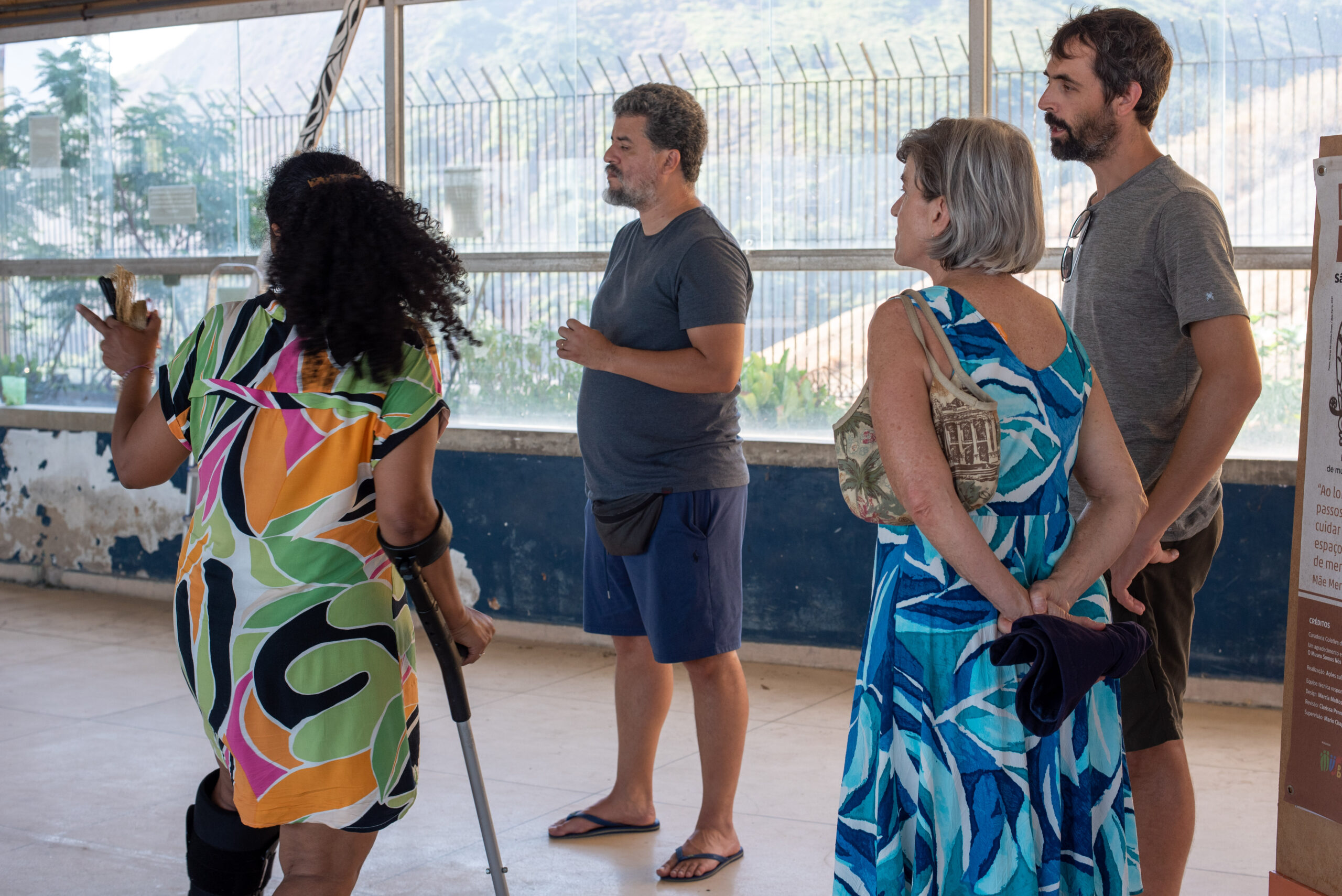
MUF’s participation in Museum Week with the Favela Climate Memory exhibition and its various accompanying activities such as workshops, plays, guided tours, soirees, and the study circle “The MUF Way of Making a Museum” aims to contribute to the preservation of the memory of Rio’s favelas.
The exhibition was held at MUF until June 4, when it was transferred to the Center for Studies and Solidarity Actions of Maré (CEASM), in the North Zone favelas of Maré, where it will be showcased throughout the month of June as part of the curriculum for the community’s youth. To request guidelines for bringing the Favela Climate Memory exhibit to your organization, click here.
Don’t miss the full album by Bárbara Dias and Luiza de Andrade on Flickr:
*The Sustainable Favela Network (SFN) and RioOnWatch are both initiatives realized by not-for-profit organization Catalytic Communities (CatComm).
About the author and photographer: Bárbara Dias was born and raised in Bangu, in Rio’s West Zone. She has a degree in Biological Sciences, a master’s in Environmental Education, and has been a public school teacher since 2006. She is a photojournalist and also works with documentary photography. She is a popular communicator for Núcleo Piratininga de Comunicação (NPC) and co-founder of Coletivo Fotoguerrilha.

